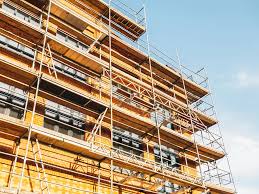nóv . 24, 2024 06:40 Back to list
formwork for suspended slab company
Formwork for Suspended Slabs An Overview of Its Importance and Applications
In the world of construction, formwork plays a pivotal role, especially when it comes to creating suspended slabs. A suspended slab refers to a concrete slab that is not supported by the ground but is elevated, making it crucial in multi-storey buildings, bridges, and various other structures. The formwork, which serves as a mold for the concrete, is essential for ensuring the quality, durability, and aesthetic appeal of the final product.
What is Formwork?
Formwork is a temporary or permanent mold that is used to hold freshly poured concrete in place until it hardens and gains sufficient strength. It is made from various materials including wood, metal, or plastic, and is designed to shape concrete into desired forms. This process is critical for constructing not only suspended slabs but also columns, beams, and walls.
Importance of Formwork in Suspended Slabs
1. Structural Integrity The primary function of formwork is to ensure that the concrete maintains its shape and alignment during the curing process. For suspended slabs, which bear significant loads, this structural integrity is even more vital. Properly designed and executed formwork ensures that the slabs can safely support the weight of the building above.
2. Surface Finish Formwork impacts the surface finish of the concrete. Well-constructed formwork leads to smooth and even surfaces that require minimal finishing work. This is particularly important in aesthetics-sensitive areas, such as commercial spaces, where the appearance of exposed concrete can greatly influence the overall design.
3. Efficiency and Speed Modern formwork systems, including modular and pre-fabricated options, allow for quicker and more efficient installation. This efficiency is crucial in construction projects where time is of the essence. Fast-tracked timelines are often a necessity in commercial construction, making advanced formwork systems indispensable.
4. Safety Suspended slabs present unique safety challenges. The formwork acts as a temporary structure that supports concrete until it can support its own weight. A reliable formwork system ensures that workers can operate safely beneath and around forming areas, significantly reducing potential hazards on site.
formwork for suspended slab company

5. Cost-effectiveness Although high-quality formwork may come with an upfront cost, its role in reducing waste, minimizing rework, and enhancing speed can lead to overall savings in construction budgets. Investing in durable formwork can also mean fewer repairs and replacements over time, providing long-term financial benefits.
Types of Formwork for Suspended Slabs
1. Traditional Timber Formwork This is the most common type, providing flexibility in design and is cost-effective. However, it can be labor-intensive and may require skilled carpenters to install properly.
2. Engineered Formwork Systems These are industrially produced forms designed for high efficiency and precision. They include materials like steel and aluminum, which offer durability and can be reused multiple times, thus enhancing cost-effectiveness.
3. Plastic Formwork Lightweight and easy to handle, plastic formwork has become popular for its ease of assembly and disassembly. It is suitable for complex shapes and ensures a smooth finish.
4. Modular Formwork Systems These systems allow for quick assembly using standardized components. They are particularly beneficial for large projects where consistency and speed are essential.
Conclusion
In summary, formwork for suspended slabs is a critical element in the field of construction, impacting structural integrity, surface finish, efficiency, safety, and overall costs. Whether utilizing traditional methods or advanced engineered systems, the choice of formwork plays a significant role in defining the success of a construction project. As construction technologies evolve, so too will the techniques and materials used for formwork, continually enhancing the way we build our environments. Investing in high-quality formwork is an investment in safety, durability, and aesthetics, ultimately contributing to the longevity of structures that define our cities today.
-
Formwork Spring Clamp Factories: Quality & Bulk Supply
NewsAug.21,2025
-
Premium Ringlock Scaffolding | China Manufacturer & Supplier
NewsAug.19,2025
-
Efficient Table Formwork for Fast Slab Construction & Reusability
NewsAug.18,2025
-
Timber Beam H20 Formwork & Shuttering - Durable & Reliable
NewsAug.17,2025
-
Timber Beam H20: Premium Formwork & Shuttering Solutions
NewsAug.16,2025
-
Premium H20 Timber Beam for Formwork & Slab Shuttering
NewsAug.15,2025